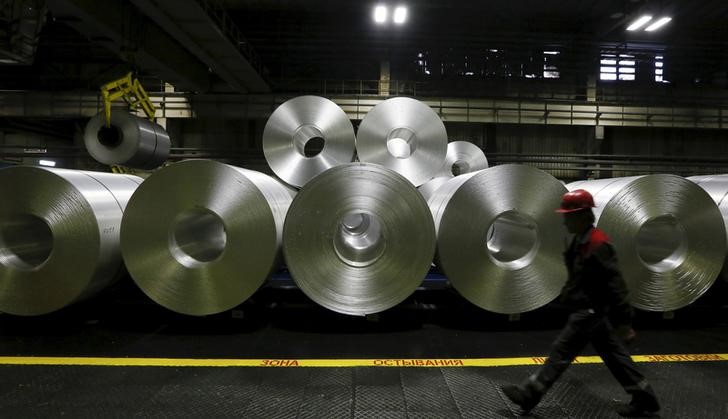United Homes Group stock plunges after Nikki Haley, directors resign
(Bloomberg) -- Base metals extended gains after climbing to a record high on Thursday as a global energy shortage curbed supply, piling pressure on manufacturers and fueling concerns about persistently high inflation.
An index of six base metals on the London Metal Exchange rose to an all-time peak on Thursday, led by zinc’s surge to the highest since 2007 as European smelters joined Chinese plants in curtailing output due to a power crisis. Aluminum, one of the most energy-intensive commodities, notched a fresh 13-year high on Friday and copper held above $10,000 a ton.
Some producers are grappling with electricity outages, while others are cutting output as the surge in power prices outpaces the rally in metals markets. The combination of high energy costs and this year’s broad advance in commodities is fanning concerns that inflation risks may linger for longer than previously expected, clouding the outlook for policy makers and threatening a recovery in the global economy.
The latest boost to metals came earlier this week when Nyrstar -- one of the biggest zinc producers -- said it will cut output at three European smelters by up to 50% due to rising power prices and costs associated with carbon emissions. Meanwhile, Matalco Inc., the largest U.S. producer of aluminum billet, is warning customers it may curtail output and ration deliveries as soon as next year amid a magnesium shortage.
Copper is set for its biggest weekly gain since 2016 and is in a widening backwardation as global inventories shrink due to demand recovery and pandemic-driven disruptions. Rio Tinto (NYSE:RIO) Group said Friday that the start up of its Oyu Tolgoi project in Mongolia has been delayed by at least three months after Covid-related restrictions hampered progress.
Copper Futures rose 0.5% to to $10,035 on the LME, and is up more than 7% this week. Nickel advanced over 1%. Zinc was up 0.1%, on track for its biggest weekly gain since 2008. Aluminum Futures in Shanghai closed at a record.
In other markets, Iron ore fell 1% to $122.40 a ton in Singapore as investors weighed waning demand in China against Rio Tinto’s downgraded forecast for shipments. Prices in Dalian slid 1.7%.
